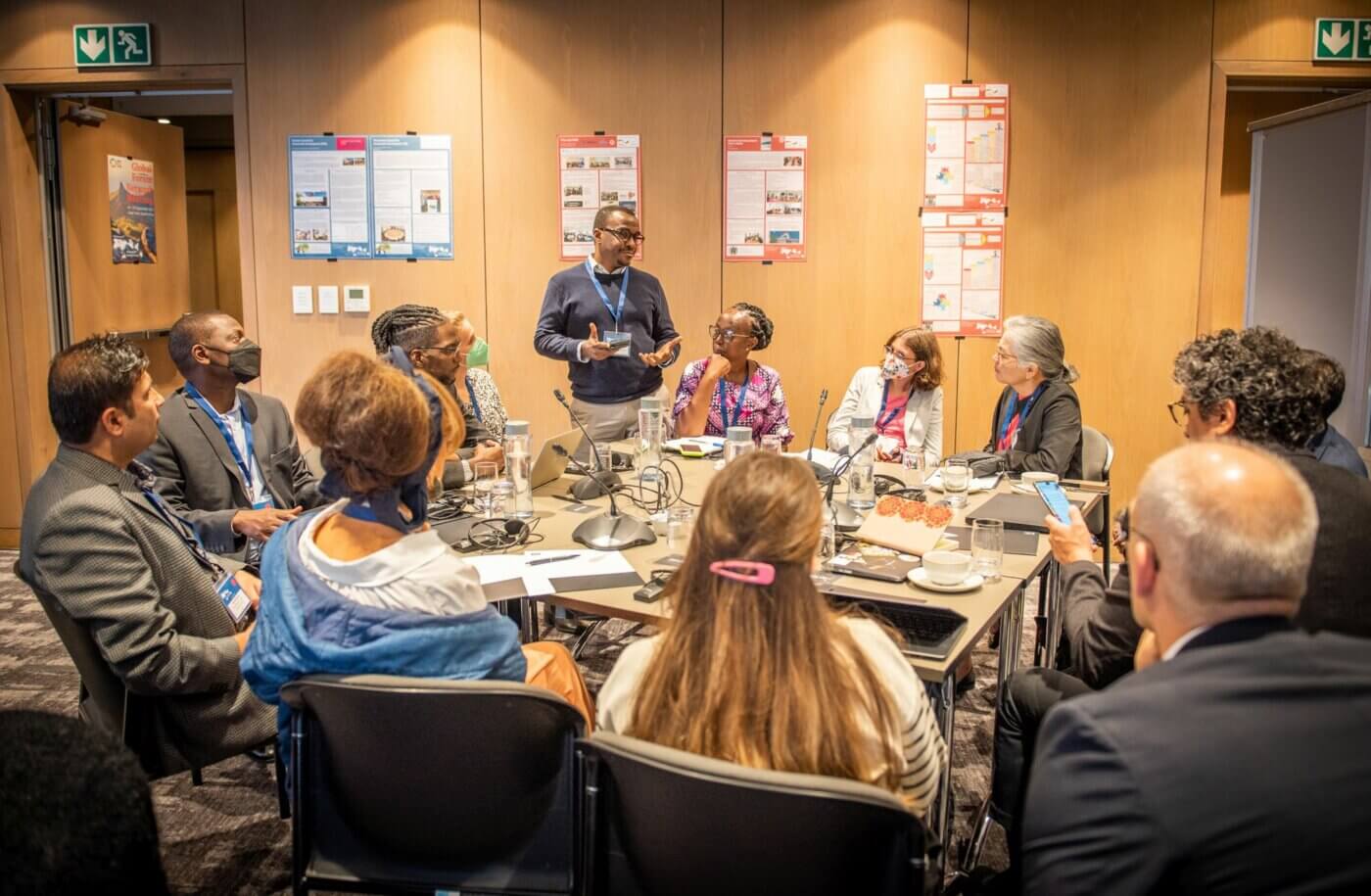Relevant reading
Economics beats politics

Jeremy Leggett is a prominent social entrepreneur from Britain. He specialises in solar power. His most recent book is not his first. In earlier works, he assessed the chances of renewable energies winning the end game against fossil-fuel technology. In particular, he discussed the notion that international politics is too fragmented to achieve much, especially as political leaders are guided by corporate interests. State action, in this view, cannot be expected to deliver much as long as fossil interests dominate the economy, especially in the USA. On the other hand, humankind cannot rise to the climate challenge without government action. Leggett’s previous books were thus not marked by optimism.
More recently, however, business interest in decarbonisation is growing, as he elaborates in his most recent, unusual publication. It consists of edited entries in his diary and can be downloaded from his website free of charge.
Leggett decided to publish it at the turn of the year 2014/15. The reason was that he felt his mood change, with optimism growing that the end game may yet result in a renewables victory. Paris could result in a symbolical turnabout which would then propel self-sustaining global change not driven by policymakers, he writes.
Leggett’s diary entries begin in 2013. He describes and reflects on meetings, conferences and other events he was invited to. His elaborations allow readers to understand his growing optimism. He gives account of recent views and assessments by important communities, in particular business leaders. His book is typical for many recent publications, including the ones discussed below, in the sense of not expecting policymakers to achieve a major breakthrough in multilateral negotiations, but arguing that changing attitudes and perceptions will drive global change somewhat regardless of global talks. Leggett has promised to add new monthly chapters until after the Paris summit at the end of this year.
Nick Reimer is a German journalist who has personally witnessed all relevant phases of multilateral climate affairs. Anyone who wishes to prepare for Paris will find his book useful.
He tackles some strategic question too. For example, he ponders what would happen if Paris failed. His prediction is that climate policy-making would then fragment into competing, sub-global settings as happened in trade affairs after the WTO summit in Cancún in 2003 made obvious that there would be no multilateral agreement. He does not indicate whether that would serve or hurt climate matters.
Academic contributions
Aaditya Mattoo and Arvind Subramanian similarly refer to international trade. Both are from India, and both work in Washington. Mattoo is a staff member of the World Bank and Subramanian is employed by the non-governmental Center for Global Development. In their view, three problems have thwarted the conventional approach of multilateral climate policy-making to date:
- the “narrative problem”,
- the “adding-up problem” and
- the “’new world‘ problem”.
According to them, all three must be solved to facilitate cooperation. As would be typical of security-affairs thinking, they see different blocks opposing one another. The narrative problem is that groups of nations legitimise their own uncooperative stance by accusing other groups of being uncooperative.
To escape this vicious circle, one block must take the lead, Mattoo and Subramanian write, and an alliance of emerging markets such as the BRICS (Brazil, Russia, India, China and South Africa) could do so. One reason is that governments understand the huge dangers their nations must face if climate action is not taken fast. Another is that they are aware of the rich nations’ inability to lead because of their debt addiction since the global financial crisis.
As for the “adding-up problem”, Mattoo and Subramanian expect technological progress to contribute to overcoming the dominant zero-sum thinking, according to which less carbon emissions always mean less development. In zero-sum games, compromise is hard to achieve because success for one party means defeat for another party.
The authors stress that prosperity no longer depends on fossil fuels, but can be based on renewables as well. The old approach of compensating reductions of carbon emissions with money has therefore become obsolete.
To speed up technological progress, Mattoo and Subramanian want global decision makers to focus on building the “new world”, instead of obsessing over the emissions of outdated technology. New technology, they argue, must be developed in the advanced nations and then drive growth and prosperity in other world regions.
The objective of this kind of new global cooperation would be economic progress, and the reduction of carbon emissions would be a welcome side effect. To facilitate the transition, the two authors demand an international-trade regime that rewards innovation and, at the same time, facilitates broad-based application.
Carlo Jaeger agrees that climate policy must make economic sense. He is the lead editor of a collection of essays. He used to work at the Potsdam Institute for Climate Impact Research. Jaegers own contribution tackles the tragedy of the commons, a topic economists are familiar with.
The basic problem is that, as public goods are accessible to everyone, no one can be excluded from using them. They are of vital importance, but unregulated markets fail to produce them in sufficient quantity and quality because private investment in these goods do not pay. In real life, commons are therefore managed collectively, as economist and Nobel laureate Elinor Ostrom has shown. Commons can be managed according to traditions, by government agencies or by formal organisations such as cooperatives.
As other scholars before him, Jaeger considers the atmosphere a common good that is being overburdened by greenhouse gases from many different parties. Collective action must be taken to improve matters, and such action must be based on a collective perception. At the international level today, science defines what is real, and in this particular case, economics theory is the politically most relevant branch of science. According to Jaeger, the common understanding of how this theory assesses climate affairs needs urgent revision, including among economists themselves.
Jaeger argues that the wide-spread assumption that climate protection will require slower growth is unreasonably pessimistic, rooted in an out-dated and overly simplified economic model according to which market forces always only lead to a single optimum. Reality, however, is more complex and complicated, and that has been acknowledged in economic theory. Jaeger emphasises that mass poverty can not only be overcome by redistributing wealth. Another and smarter option is to create new opportunities – for instance, by expanding education, developing new technologies, building infrastructure or involving more people in public affairs.
Jaeger writes that, so far, climate protection is basically regarded as a global burden which the international community must bear. This view, however, once again results in a zero-sum game as any load one party is willing to carry will lessen the burden others must shoulder. Jaeger doubts a great number of sovereign states will ever agree on effective burden sharing in such a setting, not least because every single player constantly fears to be outsmarted.
To achieve more in the future than was possible in Copenhagen, a rethink is needed, Jaeger states. So far, the limited nature of the atmosphere got too much attention, whereas the opportunities of cooperation got too little attention. Jaeger points out that cooperation can lead to constellations in which all parties benefit, allowing them to transcend the zero-sum logic.
Hans-Jochen Luhmann is a scholar at the Wuppertal Institute for Climate, Environment and Energy.
jochen.luhmann@wupperinst.org
References:
Jaeger, C., et al., ed., 2012: Reframing the problem of climate change. From zero-sum game to win-win solutions. Milton Park, Earthscan.
Leggett, J., 2015: The winning of the carbon war. Free download at: http://www.jeremyleggett.net/latestbook/
Reimer, N., 2015: Schlusskonferenz. Geschichte und Zukunft der Klimadiplomatie. München, Oekom-Verlag (Final conference. History and future of climate diplomacy – only available in German).
Mattoo, A., and Subramanian, A., 2013: Greenprint – a new approach to cooperation on climate change. Baltimore, Brookings Institution Press.















